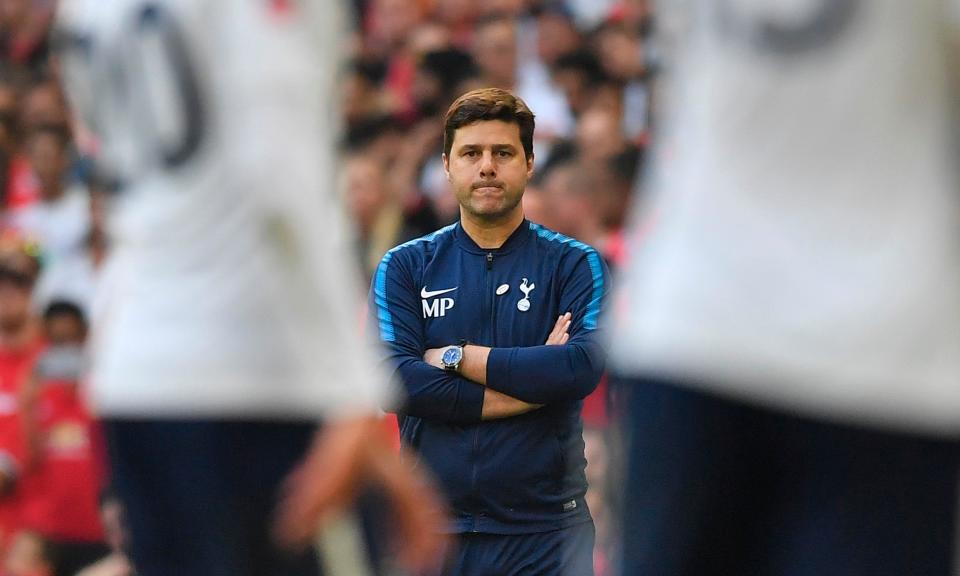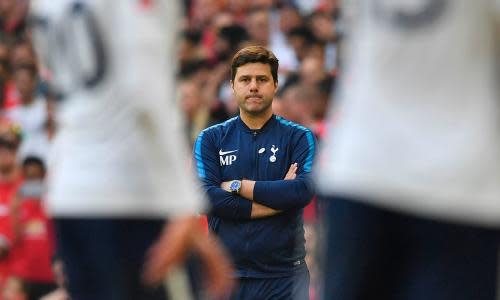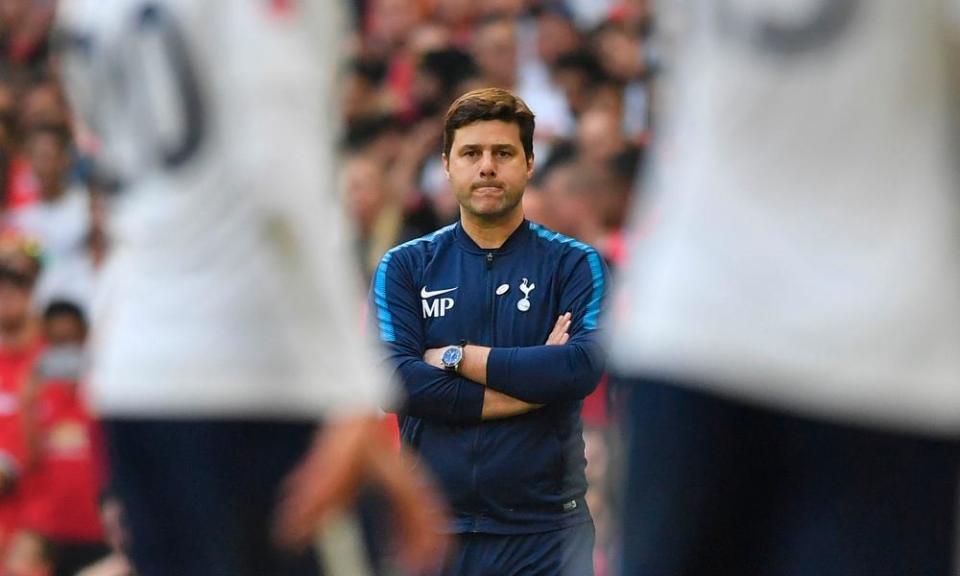Pochettino’s success at Tottenham cannot be judged on trophies alone
It feels as though Mauricio Pochettino’s career at Tottenham has been a battle with the club’s essential nature, with the need to end the curse of Spursiness. Spurs had this game in the bag, then they did not and the result was yet another semi-final defeat.
Perhaps the most impressive aspect of Pochettino’s reign is that every time he has been set a problem he has responded.
Tottenham could not finish above Arsenal? They did last season and they will this; at present the gap is 14 points. Tottenham could not prosper in the Champions League? This season they beat Real Madrid and Borussia Dortmund and should have beaten Juventus. Tottenham could not play at Wembley? They have lost twice here in the league all season. Tottenham have lost seven successive semi-finals? Ah. It is now eight and so long since they won an FA Cup semi-final that it was against a pre-Wenger Arsenal.
That leads to other, deeper-rooted questions. Does Pochettino need a trophy? Of course not. Trophies are the point of sport, at least at a professional level, and there would be something very sad if silverware became less significant than league position, if the battle were transferred entirely from the pitch to the balance sheet. But at the same time there is something absurd about those who decry the progress made by Tottenham under Pochettino just because it has not yet been adorned by a trophy.
Nobody, surely, thinks the last Spurs manager to lift silverware, Juande Ramos, did a better job than Pochettino is doing. Or take a look at the recent managers to have won the FA Cup: Arsène Wenger, Louis van Gaal, Roberto Martínez, Roberto Di Matteo, Roberto Mancini, Carlo Ancelotti, Guus Hiddink, Harry Redknapp, José Mourinho. Of those, other than the serial winner Wenger whose last success does fit the pattern, only Mancini lasted more than a year after winning the trophy – which rather suggests the demand for silverware is a red herring.
READ MORE: The worst signings in Premier League history
Trophies are important and successes should be celebrated but in terms of the bigger picture the FA Cup would, at best, have offered some sort of validation for the work Pochettino is doing. But he hardly needs that and, whichever club wins or loses it, this season’s FA Cup will be forgotten by the end of August.
When Manchester United beat Ajax in the Europa League final last season, Mourinho had his side target Davinson Sánchez, identifying him as the weak link in the opposition back-line. The Colombian has had a couple of iffy moments, most notably in the away game at Arsenal, but it is indicative of how good he has been that it has been possible for Pochettino to ostracise Toby Alderweireld as his contract dispute drags on.
What Sánchez has that sets him apart from other Spurs centre-backs is pace, a vital commodity for a team that plays such a high line. But the centre of the Spurs defence looked suspect here and United caused problems, and scored two goals, by the simple expedient of putting the ball in the box.
The sense in this season’s two league meetings was of a generational clash. On the one hand were United: tough, strong, sceptical of sophistication and fancy-dannery and winning at Old Trafford thanks to a long goalkeeping clearance, a flick-on and a neat finish as Spurs’ defence froze, as though dazed by the very simplicity of the move. On the other were Spurs: modern, vigorous, dynamic and far better in their win at Wembley than the 2-0 scoreline suggested.
The game began like that league meeting here. Spurs were quicker, sharper, more mobile and took the lead with a goal of remarkable simplicity. Harry Kane and Christian Eriksen, though, then squandered chances to increase that advantage and Spurs ended up conceding the equaliser because Mousa Dembélé was caught needlessly in possession deep inside his own half.
This was the Juventus game all over again, or a rerun of last season’s semi-final defeat by Chelsea: Spurs on top but lacking the ruthlessness to finish the game off.
Tottenham, understandably, feel frustration that every slip-up is seen through the prism of their character, that every goal conceded becomes a glib reflection of their moral fibre. But they had this game in their grasp and lost. For all Pochettino’s best efforts, not far beneath the surface traces of Spursiness still linger.

 Yahoo Sport
Yahoo Sport 








































